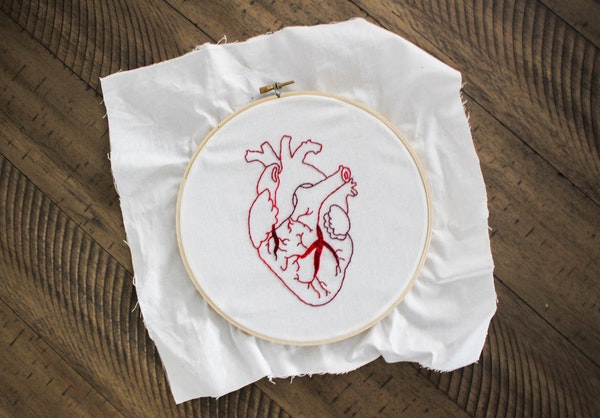
Photo by Magdaline Nicole from Pexels.
Heart attack and cardiac arrest are often used as interchangeable terms. The confusion is understandable, as they both deal with the heart; however, there are clear differences between the two conditions, and it can be very important to understand which is which.
What is a Heart Attack?
A heart attack is caused when an artery gets blocked and prevents oxygen-rich blood from reaching a certain section of the heart. If the blockage is not dealt with fast enough, the section that is supposed to get nourishment from the blocked artery will begin to die. The amount of damage sustained by the heart will continue to grow, the longer it is not treated.
The symptoms of a heart attack may be immediate and intense , but it is more common that the symptoms will start slowly and last for hours, days, or weeks leading up to the heart attack. The heart usually does not stop beating during a heart attack, as opposed to cardiac arrest.
What is Cardiac Arrest?
Cardiac arrest occurs suddenly and often without a warning. It happens due to a malfunction in the heart that causes arrhythmia, or an irregular heartbeat. Since the pumping action is disturbed, the heart can longer pump blood to the brain, lungs, and other organs. It only takes a few seconds for a person could lose consciousness and have no pulse. If the person does not get immediate treatment, they may be dead within minutes.
Symptoms
Heart Attack
As mentioned above, some heart attacks may be sudden and intense; however, they usually start slowly with mild pain and discomfort. You know your body, so if you experience any of the following symptoms, call 911.
- Chest discomfort. This involves discomfort in the center of the chest that lasts longer than a few minutes. The feeling can be an uncomfortable pressure, squeezing, fullness or pain.
- Discomfort in other areas of the upper body. There can be pain or discomfort in one or both arms, the back, neck, jaw, or stomach.
- Shortness of breath. This may occur with or without chest discomfort.
- Other signs. Other symptoms can include breaking out in cold sweats, nausea, or lightheadedness.
Cardiac Arrest
Immediate and drastic signs of cardiac arrest include:
- Sudden collapse
- No pulse
- No breathing
- Loss of consciousness
Other signs and symptoms before cardiac arrest can include:
- Chest discomfort
- Shortness of breath
- Weakness
- Fast-beating, fluttering or pounding heart (palpitations)
The Link
These two heart conditions are linked together, even though they are different. Cardiac arrest can occur after a heart attack, or during the recovery time. There is a higher risk for cardiac arrest due to heart attacks. Most heart attacks do not lead to cardiac arrest; however, if cardiac arrest occurs, it likely is following a heart attack. There are a few other heart conditions that can disturb the rhythm of the heart and cause cardiac arrest. These conditions include a thickened heart muscle (cardiomyopathy), heart failure, arrhythmias, ventricular fibrillation, and long Q-T syndrome.
Got Medicare Questions?
We hope this information on the difference between a heart attack and cardiac arrest is helpful to you.
If you have questions about your Medicare coverage, call Empower Brokerage today. Let us help with your Medicare questions so you can get back to the activities you enjoy the most. (888) 446-9157 or click here to get an INSTANT QUOTE
See our other websites:

